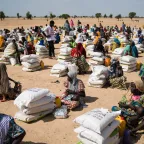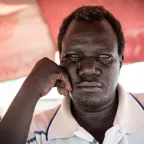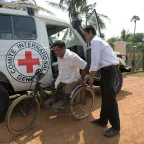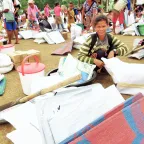Yemen: Desperate situation for civilians trapped by intense fighting in Taiz
… has trapped civilians. Dead bodies are in the streets and people are unable to attend to …
… has trapped civilians. Dead bodies are in the streets and people are unable to attend to …
The ICRC has significantly scaled up its humanitarian response to civilians affected by the armed violence in North East Nigeria. In 2016 we continue to provide food , shelter and essential household …

South Sudan is a difficult place to live for anyone, but especially for people with disabilities. The country has been devastated by years of conflict and a severe economic crisis, and public …

… to evacuate people. Ruins lined the narrow streets, making it nearly impossible to get …

15-12-2016 The head of the International Committee of the Red Cross (ICRC) in Syria, Marianne Gasser, has said it could take days to complete the evacuation operation in the Syrian city of Aleppo. …

In the 50 years of the ICRC's presence in Cambodia, the organisation has been carrying out a wide range of activities in accordance with its mandate under the Geneva Conventions. It has supported the …

… When we went to the streets to ask about the rules of war, we …
… the deadliest conflicts of our time. Homes, streets, schools and hospitals are …
We feature a roundup of our activities in Mindanao as well as stories of the people and communities we've supported in 2016. In this issue: Paying it forward a step at a time Health support in …

As Yemen approaches marking two years since the start of the conflict, the country faces one of the biggest humanitarian crises in the world. Around three million people -ten percent of the …
Try one of the following resources:
Created in 1863, the ICRC library, alongside the ICRC archives, provides an indispensable documentary reference on the organization itself and international humanitarian law.
International humanitarian law is based on a number of treaties, in particular the Geneva Conventions of 1949 and their Additional Protocols, and a series of other instruments.
Customary international humanitarian law consists of rules that come from "a general practice accepted as law" and that exist independent of treaty law.